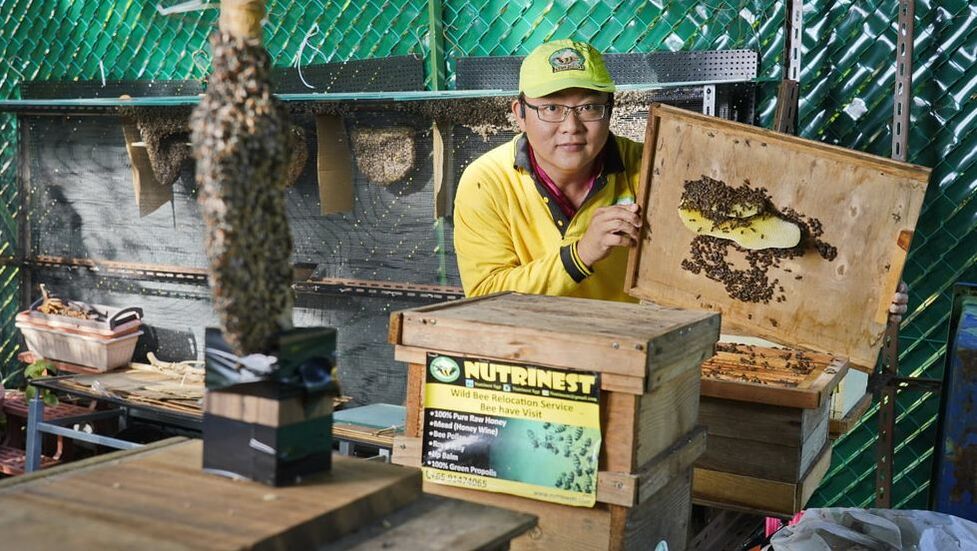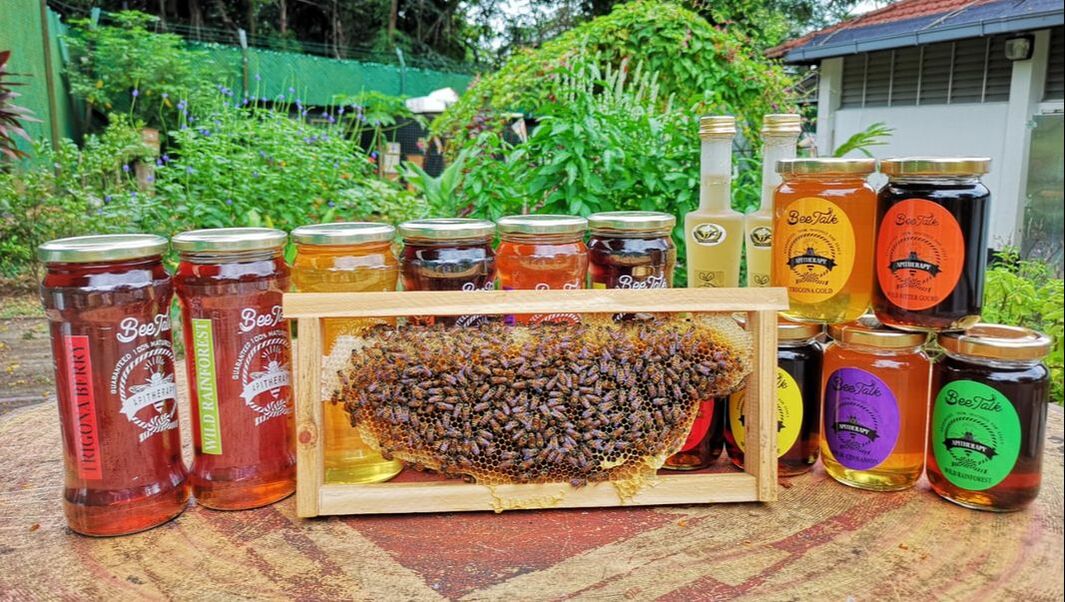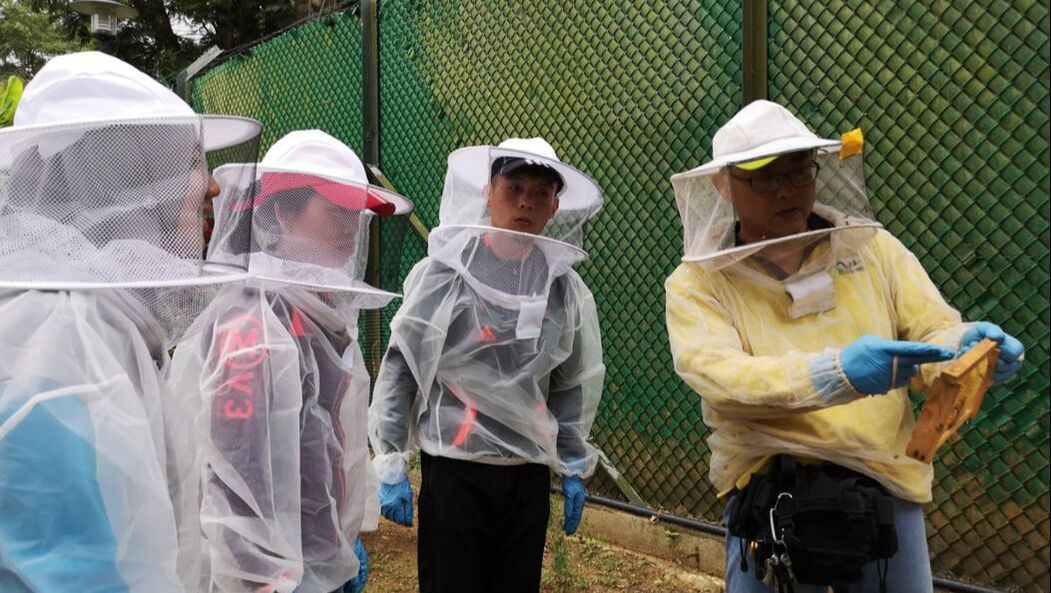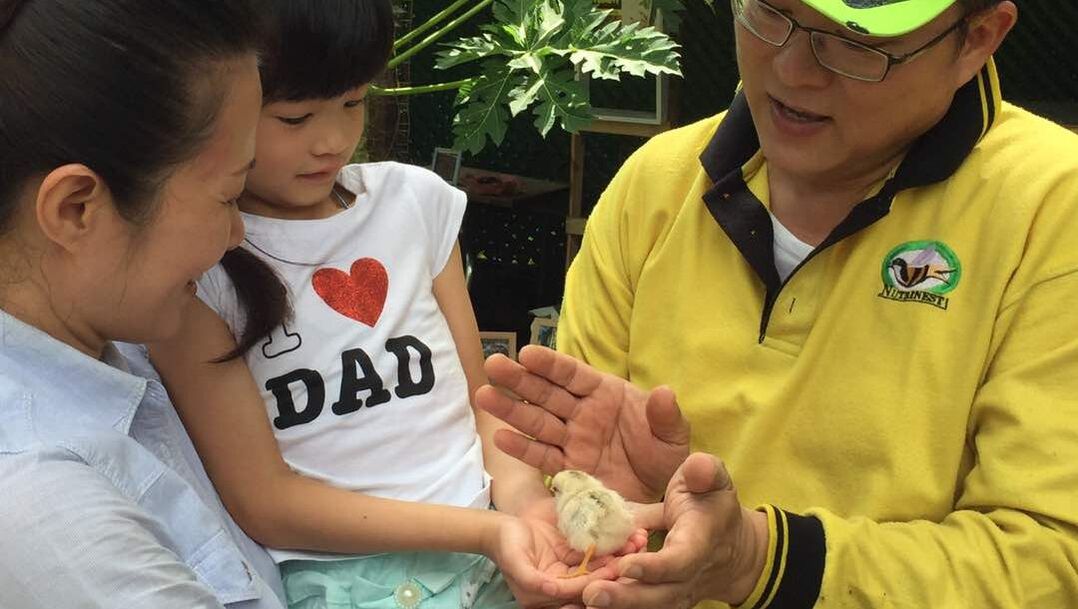Conserve Singapore Bees Together
Nutrinest's Singapore Bee Man aims to promote local honeybee conservation by conducting educational talk workshops in our bee garden apiary. We provide humane bee removal service as an alternative to pest control extermination, which kills the bees and contaminate the environment. The rescued beehive will be relocated in our gardens. This is where they produce local raw honey that you can buy from us!
Use a sustainable method to manage wild bees today. We share the Earth with them.
Call Mr Xavier Tan at 9147 4065 to remove your beehive safely.
Use a sustainable method to manage wild bees today. We share the Earth with them.
Call Mr Xavier Tan at 9147 4065 to remove your beehive safely.
Our Services
|
Try the different type of honey produced by local honeybees: Trigona Gold, Bitter Gourd, Tea Tree and more!
|
Learn beekeeping & beehive removal from us. Register your interest through the button below.
Know more about our Community Outreach and Upcoming Events
|
AS seen in...
|
THE STRAITS TIMES
Beekeeper pushing for greater protection of Singapore's bee population READ MORE 6 DEC 2021 |




